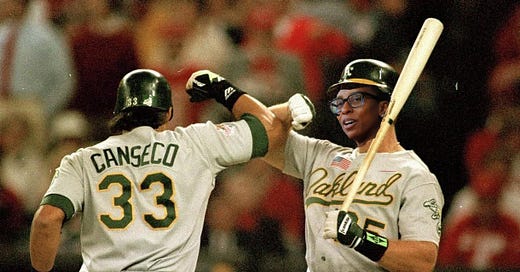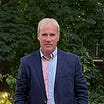Belated Merry Christmas to all of our readers and, to all hard-core soccer fans of which I am one, belated Happy Boxing Day, the holiest day in English football. This article, our last piece of the year, marks another milestone – it is the 100th article that we have posted here on this site since we began sixteen months ago. Given this trinity of days worth celebrating, we are providing an update of one of our previous articles, The Harvard Marching Bund.
Last week, we wrote a story of Christmas coal, namely the final demise of a great magazine, Sports Illustrated. This week’s story is one of Christmas gold, or, to be more precise, comedy gold, about the gift that keeps on giving: President Claudine Gay of Harvard. Originally accused of two instances of plagiarism by writer Christopher Rufo, Gay has been pummeled by further accusations of plagiarism that seem to multiply by the day, much like the gifts in the Christmas classic, The Twelve Days of Christmas. Indeed, what is perhaps the most remarkable part of the Gay story is that she apparently managed to slip so many stolen paragraphs and ideas into such a slim academic portfolio.
The pressure on President Gay has been ratcheted up on almost a daily basis. Since Rufo’s initial article, other accusations of plagiarism have arisen, including a complaint filed by a Professor X who alleged dozens of violations. The initial accusations of plagiarism against Gay were followed by an editorial, published in the Wall Street Journal, in which Carol Swain, formerly a professor at both Princeton and Vanderbilt, accused Gay of not just stealing a few paragraphs, as the anomalous committee established by Harvard to investigate Gay’s work found, but of stealing her entire body of work. Last week, the Boston Globe, ordinarily a sympathetic ear for Gay, published an editorial, noting how the establishment of a special committee by Harvard deviated from the manner in which other charges of plagiarism were investigated by the university, and demanded that Harvard state unequivocally whether Gay’s work was plagiarism or not. Even a reliably liberal columnist for the Washington Post has urged Gay to resign.
As if Gay’s alleged plagiarism and her handling of antisemitism on campus were not enough, another accusation has been made more recently – that Gay committed data fraud in one of her papers from 2001. It has been reported in the New York Post that two researchers, one from Dartmouth and one from Stanford, questioned Gay’s findings in that paper, calling them “implausible” and “internally inconsistent.” They both requested the underlying data, but were denied by Gay.
The rot at Harvard has spread to its governing board, the Harvard Corporation, otherwise known as the President and Fellows of Harvard College. Calls for the members of the Corporation to resign have also begun. Such calls only intensified when the New York Post revealed that, after the paper first raised questions about Gay’s scholarship, the University squashed any outside inquiry by threatening legal action. In a letter written on their behalf, the Fellows effectively cleared Gay before they had even commenced their so-called investigation. That position became completely untenable almost immediately after Gay herself began to make a series of corrections to her papers. Leaks have suggested that the Fellows have asked President Gay to resign and that she has refused, threatening litigation if she is fired. If true, this story adds another layer of incompetence to the Corporation’s handling of the current situation.
A number of writers have compared the saga of Claudine Gay to that of Bud Light and VP for Marketing, Alissa Heinerscheid, the subjects of two other prior stories on this site, The Budweiser Controversy – Is There "Lite" At the End of the Tunnel?, and Happy Easter: This Bud’s Not For Everyone. However, the comparison is far from apt. To be sure, the reaction of Harvard has, in many ways tracked that of Bud Light. After the Dylan Mulvaney controversy broke, Bud Light immediately broadcast a commercial emphasizing its patriotism and its solidarity with blue-collar America. Harvard, for its rehabilitation, presented the unlikely image of President Gay lighting a menorah (albeit with what appeared to be a tiki torch), ignoring the fact that the menorah in question had to be removed every night for fear of vandalism.
Nevertheless, the two tales are fundamentally different. Unlike Bud Light, Harvard once had a quality product. Harvard has always been more than a brand, even though the importance placed on that brand has increased over the past decades. Harvard’s problem is that it is hard for the university to maintain a reputation for intellectual excellence when its public face, i.e., its president and governing board, demonstrates such incompetence and intellectual mediocrity.
While the example of Bud Light might not prove useful, the past, albeit the recent past, does provide another template for Harvard and President Gay to follow in order to resolve their present predicament. In the 1990’s, Major League Baseball endured its own cheating scandal, in which several stars, at the pinnacle of the game, were accused of using performance enhancing drugs, i.e., steroids, including Barry Bonds, Alex Rodrigez, and Rafael Palmiero. Like President Gay, the vast majority denied any wrongdoing. Like Harvard, Major League Baseball deemed it better for business to ignore the burgeoning crisis than to confront it, notwithstanding the evidence that major figures were cheating.
However, one ballplayer, Jose Canseco, did not merely get ahead of the scandal, he embraced it, admitting his own steroid use, and identifying other cheaters in the sport. Canseco had been a failed minor league ballplayer until he began to ingest steroids. By virtue of his cheating, Canseco, like Gay, reached the pinnacle of his profession, being named as the American League’s Most Valuable Player in 1988 and forming a notorious duo, with Mark McGwire, known as the Bash Brothers.
When his baseball career ended, Canseco took a different turn. He went public about his steroid use and capitalized on his notoriety, collecting stipends as he toured various minor leagues, playing for such teams as the Laredo Broncos, the Yuma Scorpions, the Rio Grande Valley Whitewings, and the Normal CornBelters. He also engaged in several celebrity boxing matches, appeared on Celebrity Apprentice, wrote a column for Vice, and opened his own Las Vegas car wash, where he signs autographs every Wednesday.
There are several significant differences between Jose Canseco and Claudine Gay. For one, Canseco, unlike Gay, has published a book, a best-seller entitled Juiced, Wild Times, Rampant 'Roids, Smash Hits, and How Baseball Got Big. Moreover, unlike Gay, he appears to have written it himself, and followed it up with a second best-seller.
We recognize that it is doubtful that President Gay will publish her own tell-all, A Few Instances of Inadequate Citation, Triggered Times, Rampant Intersectional Rage, Smashed Idols, and How Harvard Got Woke. Nor is it probable that President Gay will barnstorm around the country through community colleges, lesser universities, or whatever is the educational equivalent of the Normal Cornbelters, in order to pick up honoraria, as Canseco did, or open her own retail establishment, appearing to sign autographs once a week.
Nevertheless, for all his flaws, Canseco and his revelations served a greater good, providing a pretext for baseball to clean up the sport, and resulting in Congressional hearings and the commissioning of the Mitchell Report, which set forth the findings of a long-term investigation by former Senator George Mitchell. Gay could provide a similar pretext for Harvard. Congressional hearings are already in the offing for Harvard, but an internal review of the university’s politicization at the expense of academic excellence, similar to the Mitchell Report, would go a long way to restoring the school’s reputation. However, it is unlikely such a report will ever be commissioned, if only because the men who ran Major League Baseball appear to have been significantly smarter than the individuals who currently run Harvard.






"Unlike Bud Light, Harvard once had a quality product." I suppose there is nothing more to say. Oh, and that photo is perfect.